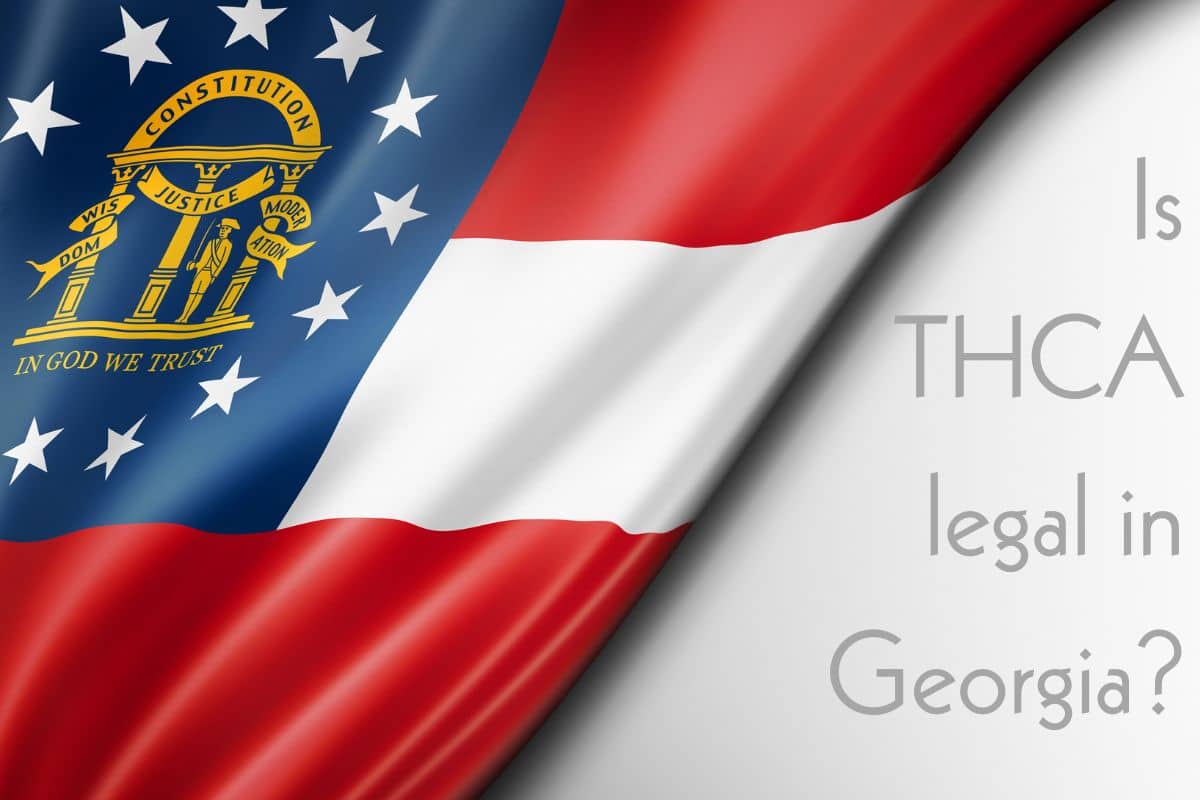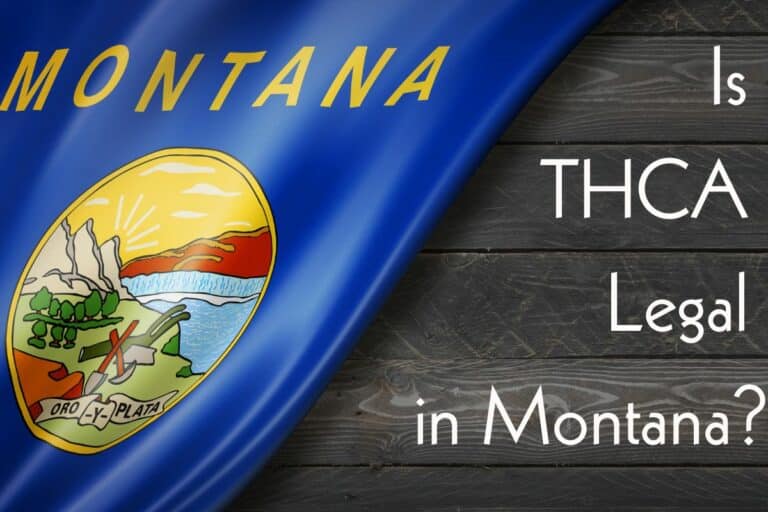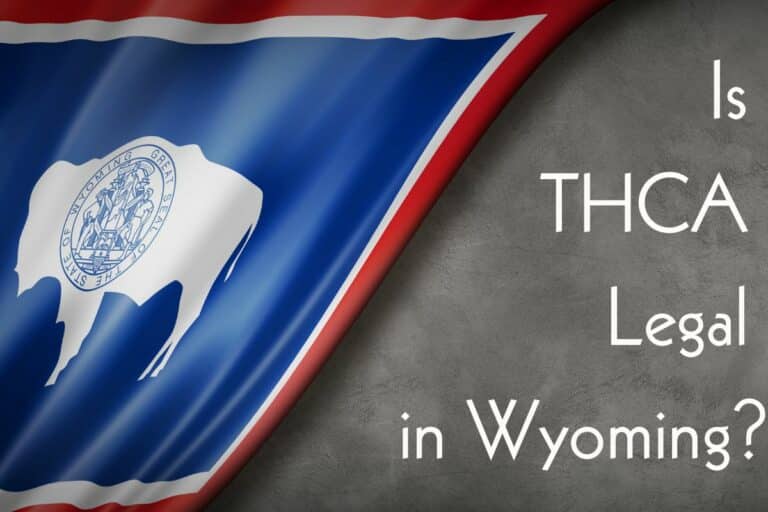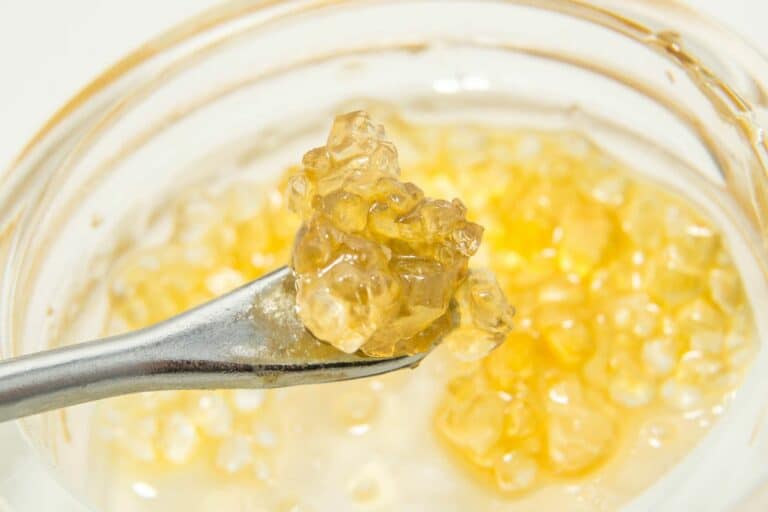Is THCa Legal in Georgia: Understanding State Cannabis Laws
Navigating Georgia’s marijuana laws is like piecing together a puzzle, especially with THCa at the center of it all. The Peach State has strict medical cannabis regulations, clearly marking what’s allowed and what’s not. It’s common knowledge that a little THC oil might pass for certain health conditions, but remember, the law’s eyes are **always** watching. Join us to unlock the secrets of these regulations, transforming knowledge for anyone keen to understand the legal landscape.
Addressing THCa specifically, an important precursor to THC, it’s classified distinctively because it doesn’t possess psychoactive effects in its raw form. It is only when THCa is decarboxylated, through heat or light, that it becomes psychoactive THC. While Georgia law permits low THC oil, the particulars of THCa’s legality hinge on a careful interpretation of state regulations and the precise chemical composition of the substance in question.
It’s important for you as a Georgia resident or someone interested in cannabis laws to stay informed about the current legal framework. For instance, recent studies indicate a growing patient concern regarding access to cannabis products within Georgia’s legal constraints. As the discussion around cannabis continues to evolve, staying updated on the legalities will ensure that you remain compliant with state laws and regulations.
Understanding THCa
As you navigate the complexities of cannabis laws and substances, it’s crucial to differentiate between the various compounds found in the plant. THCa, or tetrahydrocannabinolic acid, is one such compound that often raises questions about its legality and effects.
THCa Definition
Tetrahydrocannabinolic acid (THCa) is a non-psychoactive cannabinoid found predominantly in fresh cannabis. Although THCa is closely related to THC (tetrahydrocannabinol), it does not produce the “high” that is commonly associated with THC. Instead, THCa is found in its acidic form in the plant and requires decarboxylation—usually through heat—to convert to the psychoactive THC.
THCa vs. THC
| Property | THCa | THC |
|---|---|---|
| Form | Found in raw cannabis, primarily in live or fresh plants | Formed through decarboxylation of THCa (by heating) |
| Activation | Requires decarboxylation (heat) to become THC | Activated through heating or processing |
| Psychoactivity | Non-psychoactive in its raw form; does not induce a “high” | Psychoactive; produces the characteristic “high” associated with cannabis |
| Potential Benefits | Limited research, potential anti-inflammatory, neuroprotective, and anti-emetic properties | Extensively studied for various medical uses, including pain relief, nausea reduction, and appetite stimulation |
| Methods of Consumption | Found in raw cannabis, can be consumed through fresh juices, smoothies, or as a dietary supplement | Consumed through smoking, vaping, edibles, tinctures, and other forms after decarboxylation |
| Interaction with CB1 Receptors | Does not directly bind to CB1 receptors | Binds to CB1 receptors in the central nervous system, producing psychoactive effects |
| Legal Status | Generally not regulated or restricted as it is non-psychoactive; varies by jurisdiction | Controlled substance in many jurisdictions; legal for medical and/or recreational use in some areas |
The primary difference between THCa and THC lies in their chemical structure and psychoactive properties. While THCa is the acidic precursor to THC, it’s important for you to understand that THCa itself does not elicit psychoactive effects. It’s only after THCa is decarboxylated, typically through drying or heating, that it becomes THC—the compound known for its intoxicating effects.
The Science of THCa
| Aspect | Description |
|---|---|
| Chemical Structure | Carboxylic acid form of THC (Tetrahydrocannabinol) |
| Biosynthesis | Synthesized in the trichomes of cannabis plants |
| Decarboxylation | Requires heat to convert to THC; occurs through drying, curing, or smoking |
| Psychoactivity | Non-psychoactive in its raw form; becomes psychoactive when decarboxylated to THC |
| Interaction with CB1 Receptors | Does not directly bind to CB1 receptors; potential indirect interactions |
| Potential Therapeutic Benefits | Limited research; potential anti-inflammatory, neuroprotective, and anti-emetic properties |
| Pharmacokinetics | Limited bioavailability in its raw form; low binding affinity to CB1 receptors |
| Methods of Consumption | Found in raw cannabis; consumed through fresh juices, smoothies, or as a dietary supplement |
| Research Status | Active area of study; more research needed to understand its full range of effects |
From a scientific perspective, you should know that THCa is considered to have potential health benefits. Although research is still in its early stages, the science of THCa has garnered interest for its possible anti-inflammatory and neuroprotective properties. The way THCa works in your body is by interacting with the endocannabinoid system, but without affecting your mind as THC does. However, the legal status of THCa can be complicated and varies based on the laws within specific jurisdictions.
Legal Status of Cannabis
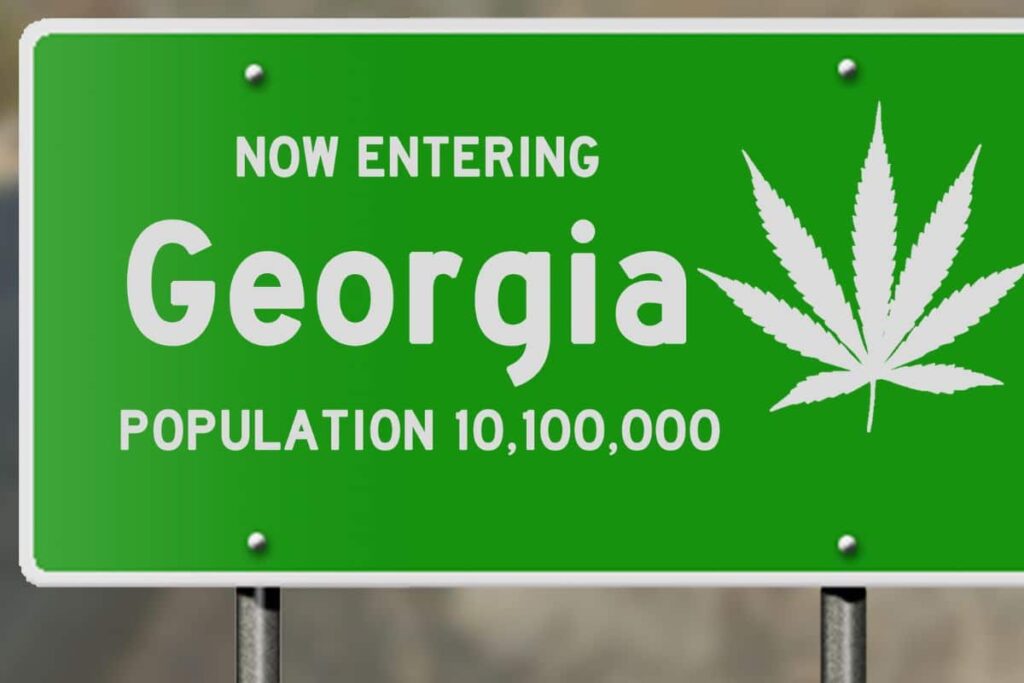
When you’re navigating the cannabis laws in the United States, it’s crucial to understand that there’s a significant divide between federal and state-level regulations. This is particularly true for Georgia, where state laws on cannabis, including low THC oils and hemp cultivation, are distinct from broader federal guidelines.
Federal vs. State Laws
Federal laws classify cannabis as a Schedule I substance under the Controlled Substances Act, making it federally illegal to possess, use, or distribute. However, state laws can and do vary; some have legalized marijuana for recreational or medicinal use, while others have not.
In contrast, hemp cultivation is legal at the federal level, thanks to the 2018 Farm Bill, provided it contains less than 0.3% THC by dry weight. This differentiation between hemp and marijuana hinges on THC concentrations, shaping the legal landscape across the nation.
Georgia’s Cannabis Regulations
In Georgia, marijuana remains illegal for recreational use, and the laws governing its medicinal use are restrictive. Legal access to cannabis products, specifically low THC oil, is limited to those on the state registry who meet certain medical criteria.
Hemp cultivation is authorized in Georgia under certain guidelines. Growers must adhere to state-approved practices, ensuring their crops are compliant with THC thresholds. This is critical to distinguish legal hemp cultivation from illicit marijuana growth.
While possession of marijuana in Georgia can lead to legal ramifications, possession of hemp-derived products following state-specific regulations is permissible. Understanding these nuances is paramount in navigating Georgia’s legal framework concerning cannabis.
Hemp and CBD
| Property | Hemp | CBD |
|---|---|---|
| Source | Plant variety of Cannabis sativa species; cultivated for industrial purposes | Cannabinoid derived from the hemp plant or marijuana plant |
| THC Content | Contains very low levels of THC (usually less than 0.3%) | Legal CBD products must contain less than 0.3% THC (in the U.S.) |
| CBD Content | Contains CBD among other cannabinoids | Predominantly composed of Cannabidiol (CBD) |
| Psychoactivity | Non-psychoactive; does not induce a “high” | Non-psychoactive; does not produce intoxication |
| Legal Status | Federally legal in many countries, including the U.S., for industrial use | Legal status varies; CBD derived from hemp is often legal, while marijuana-derived CBD may be subject to different regulations |
| Industrial Uses | Used for textiles, paper, construction materials, biofuel, and more | Extracted for various products, including oils, tinctures, capsules, edibles, and topicals |
| Potential Health Benefits | Rich in nutrients; potential for hemp oil and hemp seed products | Extensively researched for potential therapeutic benefits, including anti-inflammatory, analgesic, anxiolytic, and anti-seizure properties |
| Extraction Methods | Fibers are extracted from the stalk; seeds are pressed for oil | Extracted from the flowers, leaves, and stalks using methods like CO2 extraction or ethanol extraction |
| Regulatory Oversight | Subject to regulations related to cultivation and industrial use | Subject to regulations that vary by region, especially regarding THC content and marketing claims |
In Georgia, your understanding of hemp and CBD legality hinges on federal guidelines and state-specific regulations. The nuances in these rules determine the legal status of hemp-derived products, including the cannabinoid CBD (Cannabidiol), which is distinct from its psychoactive counterpart, THCa (Tetrahydrocannabinolic Acid).
Hemp-Derived Products

Hemp-derived products are legal to produce, sell, and possess in the state of Georgia as long as they contain less than 0.3% THC, in alignment with the Farm Bill of 2018. This legislation removed hemp, defined as cannabis with low THC levels, from the definition of “marijuana” under federal law. Consequently, CBD, a non-intoxicating compound found in hemp, has gained popularity and is widely available in various forms ranging from oils to topicals and edibles.
CBD Legal Considerations
For CBD specific to Georgia, legal considerations mostly focus on the cannabinoid’s origin and THC content. CBD derived from hemp with less than 0.3% THC is permitted. However, despite the legality of hemp-derived CBD, the state maintains a restrictive stance on higher-THC cannabis products. As for THCa, although non-psychoactive itself, it can potentially convert to THC and thus, products containing it may fall under stricter scrutiny to ensure compliance with state laws. Always ensure that your CBD products adhere to these regulations to avoid legal complications.
Regulatory Framework
When examining the legality of THCa in Georgia, it’s crucial to understand the established regulatory framework, which includes both federal and state guidelines. This oversight largely determines the legal status of controlled substances, such as THCa.
Controlled Substances Act
Under the Controlled Substances Act (CSA) at the federal level, cannabis and its derivatives are classified as Schedule I substances. While THCa is not explicitly listed, it is a precursor to THC, which is. Thus, THCa falls under the same classification due to its potential to convert into THC, making it federally illegal. You must be aware that the DEA oversees the enforcement of the CSA, where any compounds analogue to THC can be deemed controlled.
Georgia Controlled Substances Act
Georgia operates under its Georgia Controlled Substances Act, which mirrors the federal law, listing cannabis and its derivatives as Schedule I substances. However, Georgia has a low THC oil registry for patients with qualifying conditions, allowing the use of cannabis oil that contains no more than 5% THC by weight. The legality of THCa is not explicitly mentioned, but considering its relationship to THC, it is inferred to be subject to similar restrictions. If you reside in Georgia or intend to engage with cannabis products, it is pertinent to acknowledge that possession of marijuana and its derivatives, except for registered low THC oil, continues to be illegal in the state.
Accessing Legal Information
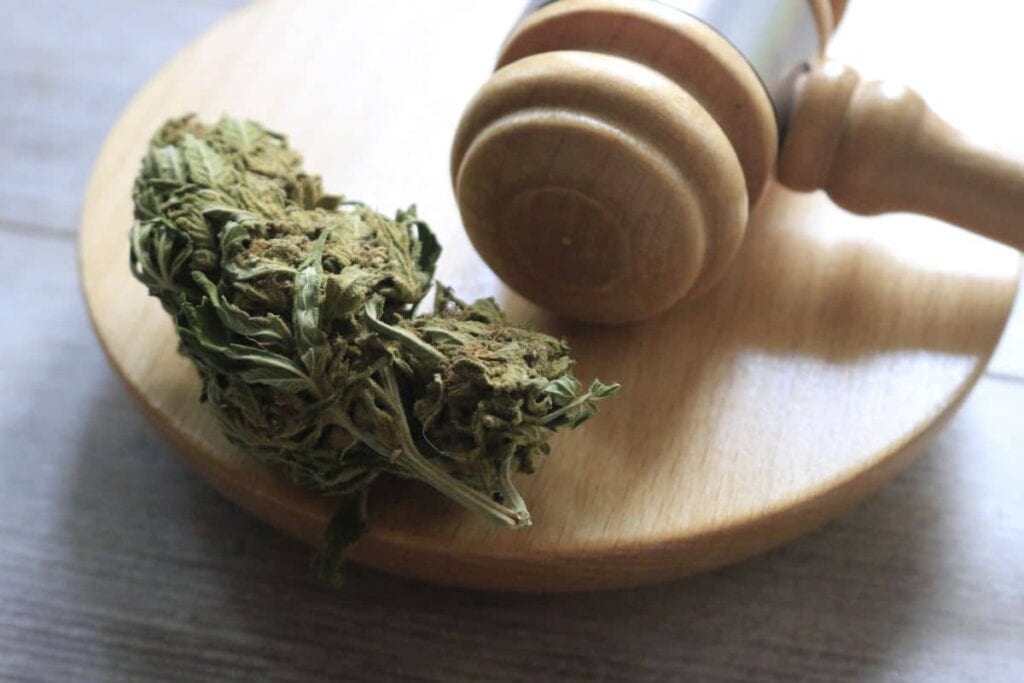
When seeking clarity on the legality of tetrahydrocannabinolic acid (THCa) in Georgia, it’s essential that you refer to reputable and official sources. This will ensure you are getting the most accurate and up-to-date information.
Official Sources
- Georgia Code: For the most reliable legal details, you should consult the official Georgia Code, available through the state’s legislative website.
- Georgia Department of Public Health: Specific information about the state’s medical marijuana laws, including THCa regulations, can be obtained by contacting or visiting the official website of the Georgia Department of Public Health.
Information for Subscribers
- Create an Account: To stay informed on legislative changes, you may consider subscribing to legal databases or newsletters. Start by creating an account on legal information websites.
- Log In for Updates: Once you have a subscriber account, make sure to regularly log in. As a subscriber, you will receive notifications and updates, which might include information on the legality of cannabis products, like THCa, in Georgia.
Frequently Asked Questions
When exploring the legal landscape of THCa in Georgia, it’s essential to be aware of the current legislation and how it may affect you.
What is the legal status of THCa in Georgia as of the latest legislation?
As of the latest laws, THCa is considered illegal in Georgia if it comes from marijuana. However, THCa derived from hemp with a THC concentration of less than 0.3% by dry weight is legal under federal law.
Can THCa be legally purchased within the state of Georgia?
You cannot legally purchase THCa in Georgia if it exceeds the 0.3% THC threshold. Only low THC oil containing less than 5% by weight is allowed for certain medical conditions.
How does Georgia’s stance on THCa compare with neighboring states like Florida and Alabama?
Georgia’s approach to THCa is restrictive when compared with Florida, which has a comprehensive medical marijuana program. Meanwhile, Alabama’s policy is closer to Georgia’s, as both states have tight restrictions on THCa and related compounds.
What are the regulations surrounding the sale of THCa products in Georgia?
In Georgia, the sale of THCa products is heavily regulated. Only certain forms of low THC oil are eligible for sale to registered patients with a qualifying condition, as outlined by state law.
What penalties, if any, exist for the possession or distribution of THCa in Georgia?
Penalties for possession or distribution of illegal THCa in Georgia are severe. Possession of marijuana-derived THCa can lead to criminal charges ranging from misdemeanors to felonies, depending on the amount and intent.
Has there been any recent legislative changes affecting the legality of THCa in Georgia?
There have been no recent changes to Georgia’s marijuana laws specifically addressing THCa. However, it’s important to stay updated, as legislation can evolve.

